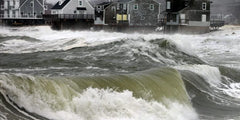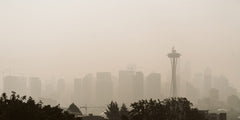
The human body requires food to function properly, and going without food for extended periods can have serious consequences. However, the duration a person can go without food varies depending on various factors such as age, sex, health status, and the availability of water.
One of the most common misconceptions about going without food is that the body can survive for weeks or even months without food. While it's true that the body can survive for extended periods without food, it's not entirely accurate to say that the body can survive indefinitely without food.
The human body has a complex mechanism for breaking down stored fats and other energy sources to provide fuel when food is unavailable. This process is called ketosis and can provide energy to the body for several weeks. However, if the body is deprived of food for an extended period, it can lead to severe malnutrition, dehydration, and organ failure.
In general, healthy adults can survive for up to three weeks without food, provided that they have access to water. However, this duration varies based on the individual's overall health, hydration status, and activity level.
In an emergency situation where food is not available, there are several things you can do to conserve calories and give yourself more time to navigate the emergency, whether waiting to be rescued, or finding your own way out.
- Prioritize hydration: Drinking plenty of water is essential to prevent dehydration and conserve calories. Dehydration can lead to a loss of energy and can make it harder for the body to perform essential functions. It's recommended to drink at least 2 liters of water per day to stay hydrated.
- Limit physical activity: In an emergency situation, it's important to conserve energy by limiting physical activity. Avoid strenuous exercise or activities that require a lot of energy, such as running or lifting heavy objects.
- Get plenty of rest: Resting is an effective way to conserve energy and prevent the body from breaking down muscle tissue for energy. Aim to get at least 7-8 hours of sleep per night to help your body conserve energy.
- Conserve body heat: The body uses a lot of energy to maintain its core temperature. In an emergency situation, it's important to conserve body heat by wearing warm clothing and avoiding exposure to the elements.
- Eat small, nutrient-dense meals: When food is scarce, it's important to make the most of what you have. Eat small, nutrient-dense meals that provide essential vitamins and minerals. Foods such as nuts, seeds, and dried fruits are good options as they are high in calories and nutrients.
- Avoid alcohol and caffeine: Alcohol and caffeine can dehydrate the body, which can lead to a loss of energy. It's important to avoid these substances in an emergency situation and stick to water or other fluids that do not contain alcohol or caffeine.
In conclusion, while it's true that the human body can survive without food for an extended period, it's not recommended to go without food for extended periods. In an emergency situation, it's essential to prioritize hydration and seek help as soon as possible. It's also essential to have a basic understanding of the body's nutritional needs and to seek medical attention if symptoms of malnutrition or dehydration occur.




